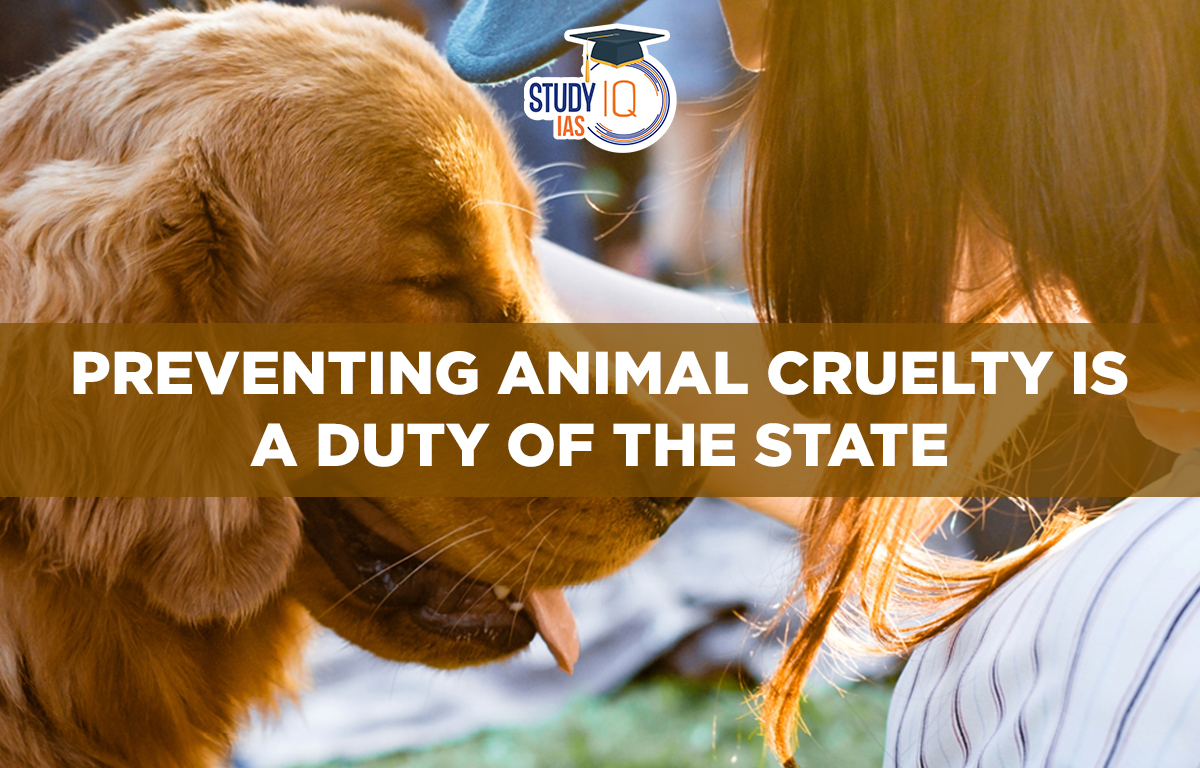Table of Contents
About the Preventing Animal Cruelty
- The Supreme Court in Animal Welfare Board of India v. A. Nagaraja, 2014 declared jallikattu illegitimate.
- Following this, Tamil Nadu amended the central law, The Prevention of Cruelty to Animals Act, 1960 and allowed “jallikattu” in the state.
- In 2018, the question as to whether jallikattu can be conserved as the state’s cultural right under Article 29(1) of the Constitution was referred to a Constitution Bench of the SC.
- Article 29(1) of the Constitution guarantees the protection to cultural rights.
- Against this backdrop, a Constitution Bench of SC is expected to deliver its verdict on the validity of the practice of jallikattu in the State.
Jallikattu
- It is a competitive sport and an event held to honour bull owners who rear them for mating where the contestants try to tame a bull for a prize;
- It is a 2000-year-old tradition popular in Madurai, Tiruchirappalli, Theni, Pudukkottai and Dindigul districts of Tamil Nadu known as the Jallikattu belt.
- It is celebrated in the second week of January, during the Tamil harvest festival, Pongal.
- Jallikattu is considered a traditional way for the peasant community to preserve their pure-breed native bulls.
- Kangayam, Pulikulam, Umbalachery, Bargur and Malai Maadu are among the popular native cattle breeds used for Jallikattu. The owners of these premium breeds command respect locally.

Prevention of Cruelty to Animals Act
- The Prevention of Cruelty to Animals Act (PCA Act), 1960 was enacted by the Parliament to prevent the infliction of unnecessary pain or suffering on animals.
- The Act was rooted in the ethical precept that it was morally wrong to inflict unnecessary pain and suffering on animals.
- It did not emanate out of a belief that animals were vested with rights.
- Limitations of Act:
- It does not criminalise the use of animals for experiments with a view to securing medical advancement.
- The present penalty of Rs. 10 or 50 is very light in the law and is incapable of acting as any deterrent for potential offenders.
- It does not include “Bestiality” as a crime.
- It does not provide any freedom for animals.
- To address these limitations, a draft Prevention of Cruelty to Animals (Amendment) Bill, 2022 is being prepared by the Union Government.
Important Arguments
- Tamil Nadu: According to the State, “jallikattu” is a religious and cultural festival that bears a “religious significance” to the people of the State.
- Since Jalikattu is a culture in the State, the court can at most regulate but not ban it.
- Jalikattu does not violate the principles of compassion and humanism and is not against the provisions of the PCA, Act.
- Petitioners: The petitioners argue that the law permitting Jallikattu races does not prevent cruelty and is contradictory to the objective of the PCA Act.
- It involves a question of inflicting cruelty and that ought to be stopped.
- In sports like Jallikattu, animals lack agency and are compelled to do it.
- Also, an activity for amusement cannot be brought in with the exception of the doctrine of necessity, because that doctrine is rooted in reasonableness.
- The doctrine of Necessity is a term used to describe the basis on which administrative actions by the administrative authority, which are designed to restore order, are found to be constitutional.
- They also argued that when the law prohibits cruelty to animals, there cannot be an amending Act which perpetuates cruelty.
- Supreme Court: In 2014, the SC held that jallikatu violated:
- The existing provisions of the PCA Act.
- Fundamental duty contained in Article 51A(g).
- Right to life contained in Article 21.
- The expanded meaning of Word ‘life’ in this Article now included a right against disturbance to the basic environment.
- It also meant that animal life must also be treated with intrinsic worth, honour and dignity.
Indian Constitution and Animal Rights
- Legislation: Union and the State legislatures have equal power to make laws on the ‘prevention of animal cruelty’, as per the Concurrent List of Schedule VII to the Constitution.
- Fundamental Rights: None of the guarantees contained in Part III of the Constitution are explicitly conferred on animals.
- Article 14 (right to equality) and Article 21 (right to life and personal liberty) are bestowed on persons.
- “Persons” usually mean human beings, or associations of human beings, such as corporations, partnerships, trusts, and the like.
- Directive Principles of State Policy: According to Article 48A, it is the responsibility of the State to improve the strength of animals and safeguard the wildlife of the country.
- Fundamental Duties: According to Article 51A(g), it is the Fundamental Duty of every citizen to protect and improve forests and wildlife and to have compassion for all living creatures.


 Future of India–Bangladesh Relationshi...
Future of India–Bangladesh Relationshi...
 Significance of a Strong Defence Industr...
Significance of a Strong Defence Industr...
 The Changing Patterns Of India’s Stude...
The Changing Patterns Of India’s Stude...

























